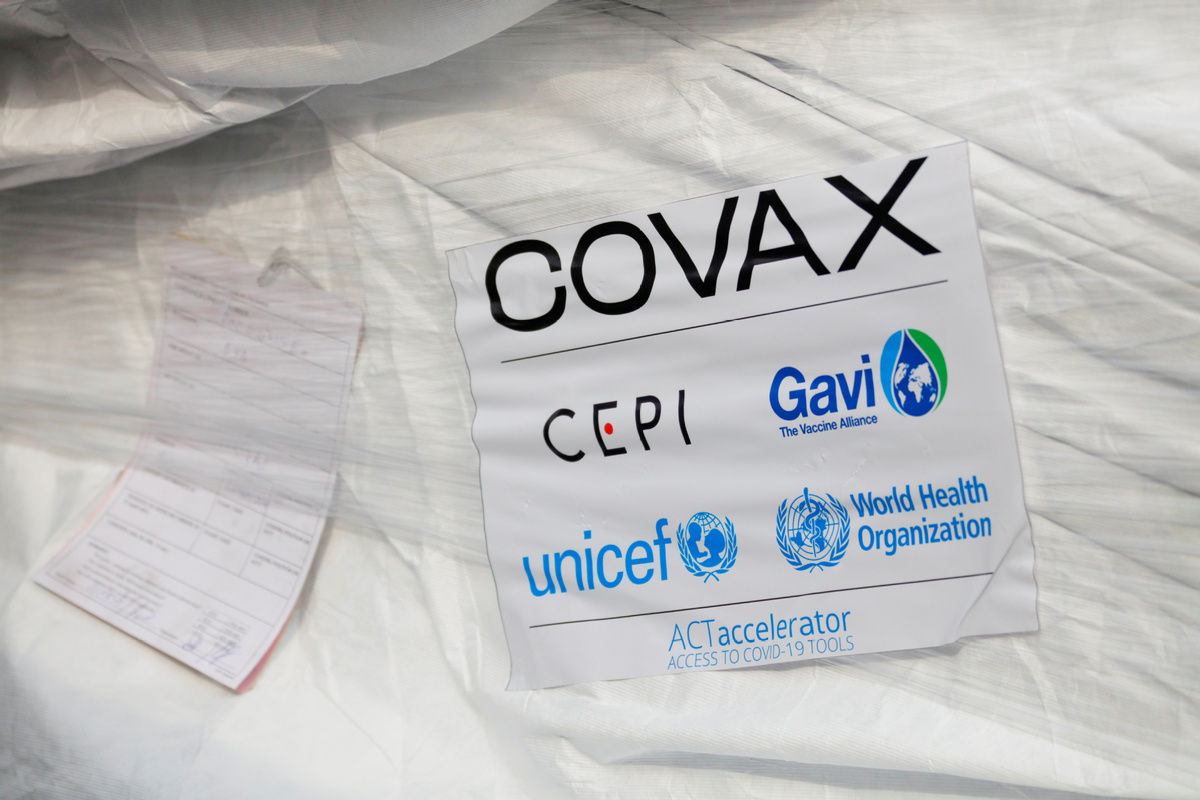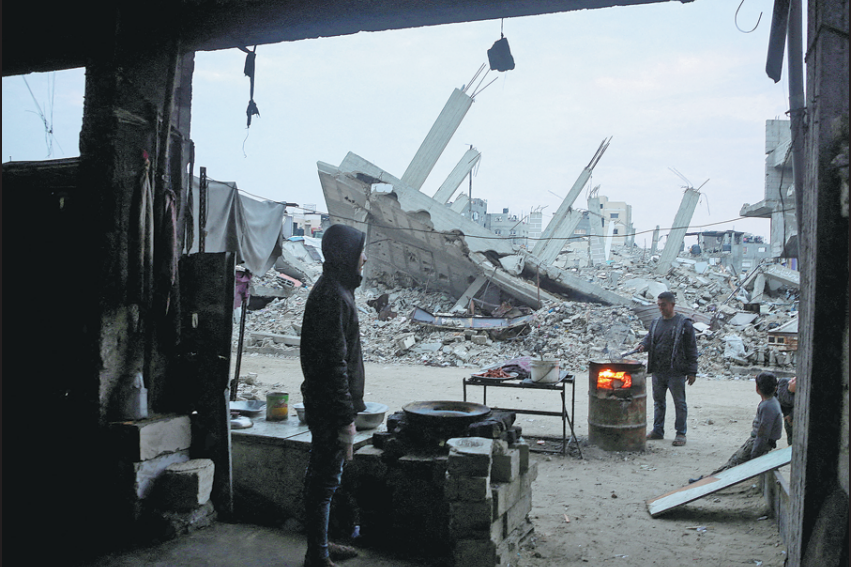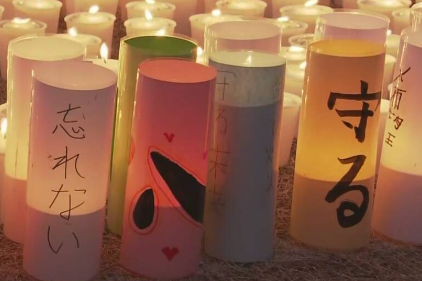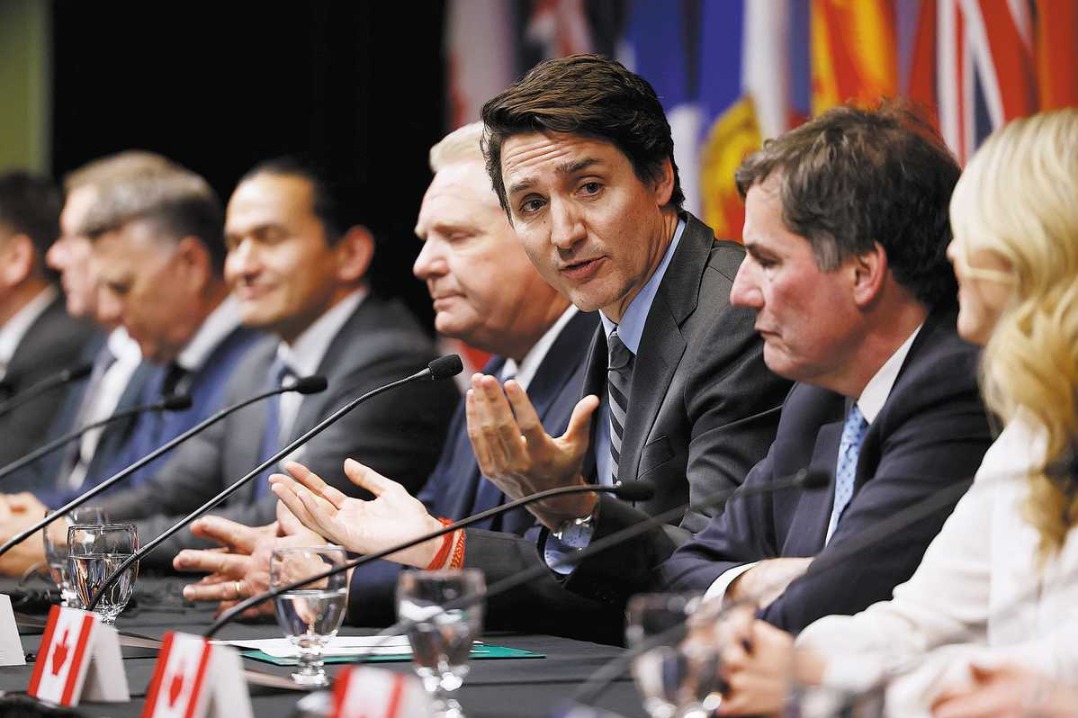Long-awaited start on jabs aid plan hailed


WHO takes heart from first shots handed out under equitable vaccines initiative
The World Health Organization on Monday applauded the start of COVID-19 vaccinations through the global initiative COVAX, though it warned the coronavirus crisis will likely persist into next year.
Ghana and Cote d'lvoire on Monday became the first countries to begin vaccination campaigns with doses supplied through the WHO-backed initiative that aims to ensure equitable access to COVID-19 vaccines.
"It's encouraging to see health workers in lower-income countries starting to be vaccinated, but it's regrettable that this comes almost three months after some of the wealthiest countries started their vaccination campaigns," WHO Director-General Tedros Adhanom Ghebreyesus told a virtual news conference.
Ghana's President Nana Akufo-Addo on Monday became the first recipient of a coronavirus vaccine under the global vaccine program.
Aside from the doses given to Ghana and Cote d'lvoire, a further 11 million doses will be delivered this week under COVAX. By the end of May, 237 million doses of vaccines will be allocated to 142 economies and countries participating in COVAX, according to the WHO.
The deliveries to the two West African nations mark the start of what has been described as the largest, most rapid and complex global rollout of vaccines in history. COVAX aims to deliver at least 2 billion doses of COVID-19 vaccines by the end of 2021, including at least 1.3 billion to the 92 low-income economies.
Countries that made early starts on vaccination are ramping up their efforts. In the United States, 3.9 million doses of the one-shot Johnson&Johnson vaccine are due to be delivered after it became the third jab approved by US regulators.
Also on Monday came the latest in a string of positive news about the available vaccines: a British study showed that the Pfizer and Astra-Zeneca vaccines were "highly effective" in preventing serious illness in older people, with a more than 80 percent reduction in hospitalization.
The study's release came just hours before France authorized the AstraZeneca vaccine for people over 65, reversing a decision that had excluded this age group.
Germany is also believed to be reconsidering its refusal to authorize the vaccine for the elderly over earlier concerns over its efficacy.
Unrealistic expectations
Despite the promising signs from vaccines, Mike Ryan, the executive director of the WHO's Health Emergencies Programme, said it was "unrealistic to think that we're going to finish with this virus by the end of the year".
Tedros said the WHO and its partners in COVAX will continue to work day and night toward the vision of seeing vaccinations start in every country within the first 100 days of this year.
"There are now 40 days left. We can only realize this vision with the support and cooperation of all partners," he said.
After six weeks of seeing a decline in new COVID-19 cases, the WHO reported an increase last week. They were logged in four of the agency's six administrative regions: the Americas, Europe, Southeast Asia and the Eastern Mediterranean.
In Brazil, health officials are urging nationwide lockdowns and curfews because hospitals are running short of intensive-care unit beds as COVID-19 claims more than 1,000 lives each day in the country.
"This is disappointing, but not surprising," Tedros said. "Vaccines alone will not keep you safe."
However, Ryan noted that it is possible to slash the hospitalizations, deaths and tragedies associated with the pandemic given the vaccines, other tools and measures that could help keep the transmissions low.
He spoke of taking "the fear and tragedies out of the pandemic".
Xinhua and agencies contributed to this story.
































